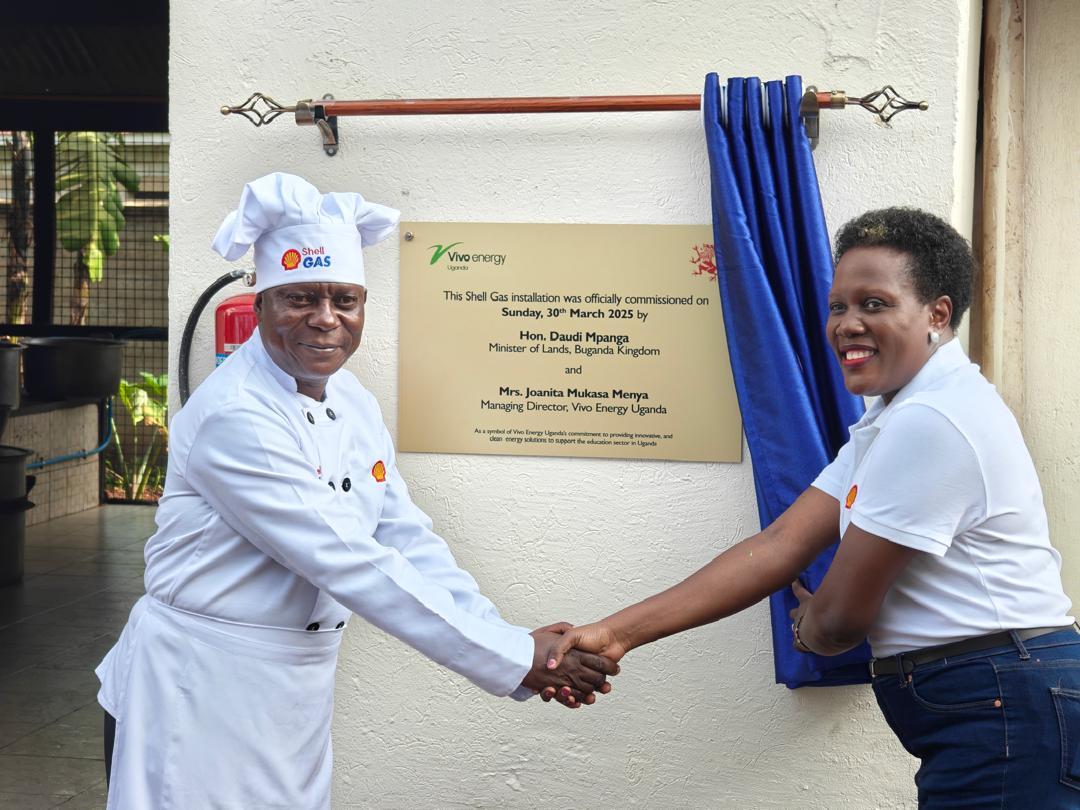
KAMPALA, Uganda — Vivo Energy Uganda has partnered with King’s College Buddo to introduce Shell Gas as a safer and more sustainable cooking solution, marking a significant shift away from traditional fuels like firewood and charcoal.
The initiative, launched during the school’s Founders Day celebrations on Sunday, March 30, 2025, aims to promote cleaner cooking methods and reduce health risks associated with prolonged exposure to smoke from traditional fuels.
“Our Shell Gas solutions provide schools with a reliable, cost-effective and safer alternative to traditional fuels,” said Alvin Bamutire, Shell Gas manager at Vivo Energy Uganda. “This initiative is crucial in reducing health risks associated with firewood and charcoal while significantly contributing to environmental conservation.”
The switch to Shell Gas is expected to minimize health risks, create a safer and healthier environment for students and staff, and reduce deforestation and carbon emissions.
“We are proud to collaborate with schools across Uganda to introduce safer and more sustainable cooking solutions,” said Joanita Menya Mukasa, managing director of Vivo Energy Uganda. “At Vivo Energy Uganda, we are committed to delivering high-quality energy solutions that not only enhance efficiency but also promote sustainability and community wellbeing.”
Vivo Energy Uganda has introduced a comprehensive Shell Gas package tailored to the needs of educational institutions, including installation systems, gas cylinders, burners, cookers and safety equipment.
The company will also provide free training for school support staff on the safe use and handling of Shell Gas.

King’s College Buddo, a prestigious school in Uganda, has become the first institution to fully integrate Shell Gas for its cooking needs, setting a positive precedent for other educational institutions.
Canon John Fred Kazibwe, headmaster of King’s College Buddo, said the school was “honored to be the first school in Uganda to adopt this safer, cleaner cooking solution.”
Alice Galiwango Kaddu, deputy headteacher in charge of student welfare at King’s College Buddo, also welcomed the initiative, saying it has transformed the school’s kitchen operations and improved the health and wellbeing of students and staff.
According to Ddumba John Peter, the college’s chef, the switch to gas has been a game-changer.
“We used to spend 2 million shillings on firewood every two days,” he said. “But with gas, we can cook for 21 days on a single 1,000-liter cylinder. It’s not only cost-effective but also reduces our environmental footprint.”
The kitchen has also seen a significant reduction in cooking times.
“We can now cook brown rice in one and a half hours, down from five hours,” said Ddumba. “Our posho cooking time has been reduced from four hours to 120 minutes, and matoke takes only two hours to cook.”
But the benefits of gas cooking go beyond just efficiency. The kitchen is now significantly cleaner, with no smoke or heat emanating from the cooking process.
“It’s made a huge difference in our working conditions,” said Ddumba. “We can now work comfortably in the kitchen without the hassle of smoke and heat.”





